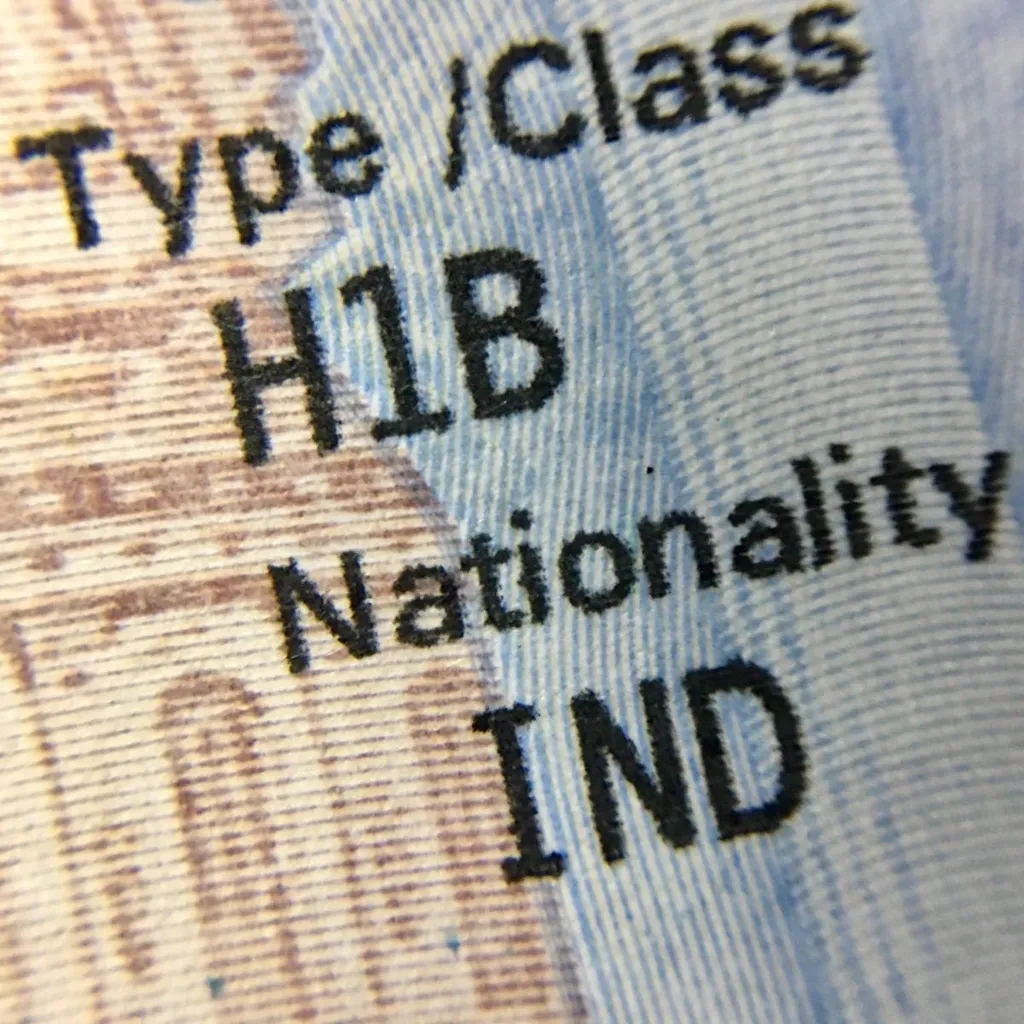In a rare public split from the Trump administration, the U.S. Chamber of Commerce has filed a lawsuit challenging the $100,000 fee imposed last month on employers sponsoring foreign workers under the H-1B visa program.
The case, filed in federal court in Washington, D.C., reflects growing tensions between the business community and the White House over immigration policy and its impact on hiring in the technology and higher-education sectors.
Newsweek contacted the U.S. Chamber of Commerce and the Department of Justice (DOJ) for comment via email outside normal office hours on Monday.
The U.S. Chamber of Commerce's lawsuit against the Trump administration over a $100,000 H-1B visa fee represents more than a dispute over immigration costs -- it's a defining moment in the relationship between corporate America and a Republican White House that has long counted the business lobby among its allies.
The case underscores the widening divide between the administration's "America First" labor agenda and employers who say the fee will choke off access to skilled talent essential to the nation's competitiveness.
It also raises a broader legal question about the limits of presidential authority to reshape immigration policy without congressional approval.
President Donald Trump announced the fee through a September 19 proclamation, which took effect two days later.
The White House said the measure was intended to address "systemic abuse" of the H-1B visa, a program designed to allow U.S. employers to hire skilled foreign workers in specialty occupations.
According to a memorandum from U.S. Citizenship and Immigration Services (USCIS) Director Joseph Edlow, the proclamation applies prospectively to petitions filed after September 21 and does not affect existing visa holders or previously filed petitions.
The Chamber's lawsuit argues that the administration exceeded its authority under the Immigration and Nationality Act and violated the Administrative Procedure Act by implementing the fee without congressional approval or a public comment period.
The Chamber, historically aligned with Republican administrations, rarely challenges policies from a sitting GOP president. This marks its first direct legal action against the Trump administration in his second term.
Neil Bradley, the Chamber's executive vice president and chief policy officer, wrote in an October 16 statement that while the Chamber supports the administration's efforts to secure the border, "Without a robust visa program, these skilled workers are forced to take their talents elsewhere. Unfortunately, the Trump administration's recent decision to impose a $100,000 fee on all H-1B applicants moves us in the wrong direction by making it cost prohibitive for many businesses, especially small business and start-ups, to utilize the program."
He added that legal immigration "helps grow the economy and support more higher-paying jobs," calling for reforms to modernize the visa system to meet labor market demands.
The Trump administration framed the policy as a measure to protect American workers. White House spokeswoman Taylor Rogers said the fee would "discourage companies from spamming the system and driving down American wages," describing it as a "commonsense action" consistent with the president's commitment to prioritize U.S. workers.
Attorneys say the measure could disproportionately affect colleges and hospitals that rely on H-1B workers in areas such as nursing and engineering, sectors already facing shortages.
Carl Hampe, a partner at Fragomen, Del Rey, Bernsen & Loewy, LLP said: "[The Chamber] is not going to take on this administration on a signature issue without a significant expression of member interest behind it."
However, the sudden implementation of the fee created confusion among employers, schools and nonprofit organizations.
"Why on earth I'm having to figure something out through a fricking tweet is beyond me," said Kathleen Campbell Walker, chair of the immigration practice at Dickinson Wright LLP, referring to the lack of formal agency guidance following the proclamation.
The Chamber's decision to file in Washington, D.C., diverges from a broader trend among conservative and business groups that have often sought out more favorable venues in Texas federal courts.
Legal experts note that the D.C. Circuit's expertise in administrative law may have influenced the Chamber's strategy.
"Cases in the D.C. Circuit get tested by the best APA minds in the country," Hampe said.
Paul Gugliuzza, a law professor at the University of Texas at Austin, added that filing in the capital "looks exceptional only because the system has been abused in such a way that the normal case looks exceptional."
The case will be heard by Senior U.S. District Judge Beryl Howell, an Obama appointee and former chief judge of the D.C. district court.
No deadlines have yet been set.
As businesses weigh the implications for next year's H-1B lottery, uncertainty remains about how the new fee will be implemented.
"It was intended to deliver an impact, which it has," said Xiao Wang, founder and CEO of Boundless Immigration.
For now, the Chamber's legal challenge represents one of the most direct confrontations between the nation's largest business lobby and a Republican administration over immigration policy in decades.
Neil Bradley, executive vice president and chief policy officer, U.S. Chamber of Commerce, on October 16: "Our economy will require more workers, not fewer."
The U.S. Chamber of Commerce's lawsuit against the Trump administration over the new $100,000 H-1B visa fee will be heard in federal court in Washington, where Judge Beryl Howell will decide whether to halt the policy while the case proceeds.
The Chamber argues that the fee was imposed without congressional approval or required rulemaking, in violation of the Administrative Procedure Act. A ruling for the Chamber could curb presidential authority over immigration policy, while a loss could expand it.
Regardless of the outcome, appeals are expected, and employers face months of uncertainty over how the fee will affect hiring and visa applications for the next fiscal year.
